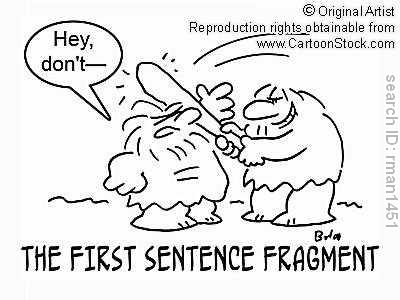Paul Whybrow
Full Member
This article on writing technique, by Gothic novelist Anne Rice, set me thinking.
How I Do It: Anne Rice on Writing Technique
After recently admitting that I've been haunted by my own fictional characters, I wondered how she gets through life day-to-day if she follows her own advice in Point 15 when writing from a single point of view. Going for dinner with her would entail eating lots of rarely cooked beef and quaffing copious amounts of Bulls Blood red wine!
Writing advice from famous writers is often contradictory. Anne Rice praises the use of adjectives and adverbs in Point 6, something that's commonly decried by writing gurus. She places emphasis on how a page is 'engineered'—that is, how it's laid out in terms of paragraph length—she favours one word and very short paragraphs. Sentence fragments are no sin to Anne Rice.
I've previously commented on paragraph length, after reading a novel with inordinately long paragraphs. In my own writing, I favour a mix of short paragraphs and meatier paragraphs—in constructing a crime novel, my detective protagonist has to work out what clues mean and that's not done instantly in a couple of sentences!
Just recently, I read 'he', a fictional imagining of Stan Laurel's life, by John Connolly. He normally writes crime thrillers with a paranormal edge, and his sentences, paragraphs and chapter lengths follow the norm. But, 'he' had very short sentences and paragraphs, with most chapters being less than three pages. This truncated way of writing suited what he was doing by getting into Stan Laurel's head, as he sat in retirement looking back on his career, wandering from one film industry character to another in his benign way—trying to work out his own life through the wrong end of time's telescope.
The look of a page is certainly something to consider, especially in times where people have limited concentration spans and they consume and broadcast information in 140 characters. As an advanced reader, I'm experienced in forging through big blocks of text, but I see the attraction of turning pages that look unthreatening (not boring?) laid out in short sections, with plenty of space between and a nice variety of dialogue and description.
I'm experienced in forging through big blocks of text, but I see the attraction of turning pages that look unthreatening (not boring?) laid out in short sections, with plenty of space between and a nice variety of dialogue and description.
While writing your own stories, and when lost in the jungle of editing your manuscript, do you pause to consider how the page looks? We all want to encourage readers into our books, not build walls to keep them out by intimidating them with huge blocks of prose.
All the same, I'm slightly cynical about the process of making something 'easy to read' as it veers towards dumbing down—not everything comes in 'fun size'—reading is supposed to stretch minds, not restrict them.
Mind you, Anne Rice has sold almost 100,000,000 copies of her novels...perhaps she's onto something!

How I Do It: Anne Rice on Writing Technique
After recently admitting that I've been haunted by my own fictional characters, I wondered how she gets through life day-to-day if she follows her own advice in Point 15 when writing from a single point of view. Going for dinner with her would entail eating lots of rarely cooked beef and quaffing copious amounts of Bulls Blood red wine!
Writing advice from famous writers is often contradictory. Anne Rice praises the use of adjectives and adverbs in Point 6, something that's commonly decried by writing gurus. She places emphasis on how a page is 'engineered'—that is, how it's laid out in terms of paragraph length—she favours one word and very short paragraphs. Sentence fragments are no sin to Anne Rice.
I've previously commented on paragraph length, after reading a novel with inordinately long paragraphs. In my own writing, I favour a mix of short paragraphs and meatier paragraphs—in constructing a crime novel, my detective protagonist has to work out what clues mean and that's not done instantly in a couple of sentences!
Just recently, I read 'he', a fictional imagining of Stan Laurel's life, by John Connolly. He normally writes crime thrillers with a paranormal edge, and his sentences, paragraphs and chapter lengths follow the norm. But, 'he' had very short sentences and paragraphs, with most chapters being less than three pages. This truncated way of writing suited what he was doing by getting into Stan Laurel's head, as he sat in retirement looking back on his career, wandering from one film industry character to another in his benign way—trying to work out his own life through the wrong end of time's telescope.
The look of a page is certainly something to consider, especially in times where people have limited concentration spans and they consume and broadcast information in 140 characters. As an advanced reader,
While writing your own stories, and when lost in the jungle of editing your manuscript, do you pause to consider how the page looks? We all want to encourage readers into our books, not build walls to keep them out by intimidating them with huge blocks of prose.
All the same, I'm slightly cynical about the process of making something 'easy to read' as it veers towards dumbing down—not everything comes in 'fun size'—reading is supposed to stretch minds, not restrict them.
Mind you, Anne Rice has sold almost 100,000,000 copies of her novels...perhaps she's onto something!

